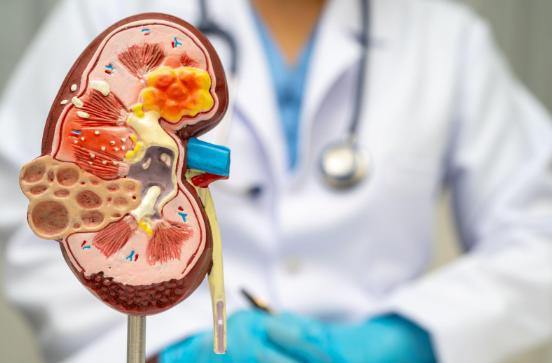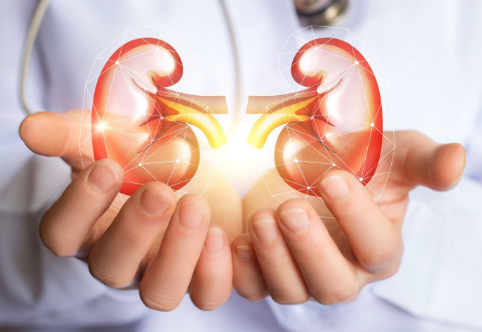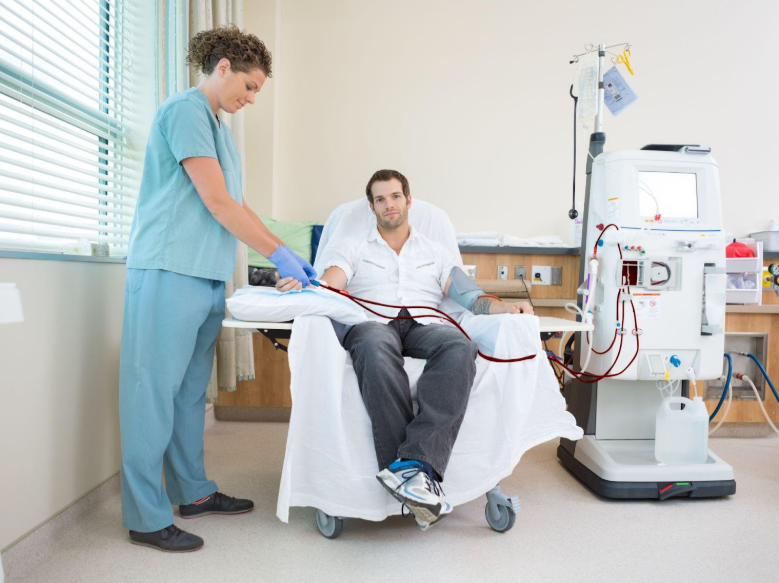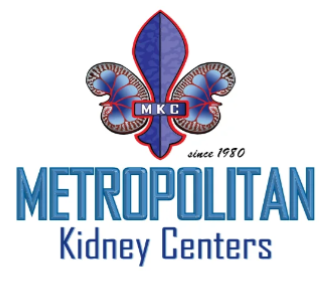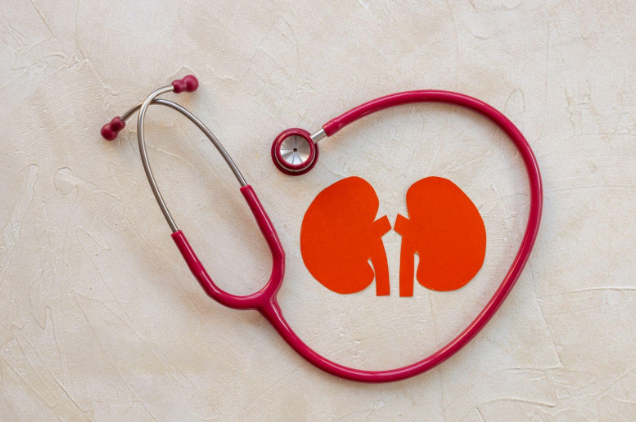
As kidneys play a vital role in filtering waste and excess fluids from the blood, their dysfunction can lead to severe health complications. Hemodialysis is a life-saving treatment for individuals with kidney failure or end-stage renal disease (ESRD).
Read on to explore what hemodialysis is, how it works, who should consider it, the procedure involved, dietary restrictions, benefits, and more.
What Is Hemodialysis?
Hemodialysis is a medical procedure used to treat individuals with kidney failure or end-stage renal disease (ESRD). It is a type of dialysis that mimics the function of the kidneys by removing waste products, excess fluids, and toxins from the bloodstream. Blood is drawn from the patient's body during hemodialysis and circulated through a dialysis machine. The blood passes through a dialyzer filter within the machine, which removes waste products and excess fluids. The purified blood is then returned to the patient's bloodstream. Hemodialysis is typically performed several times a week.
Types of Hemodialysis
Hemodialysis comes in various forms to suit individual needs and lifestyles. Understanding the different types can help patients and their healthcare providers choose the most suitable option.
Let us explore the two main types of hemodialysis:
In-Center Hemodialysis
In-center hemodialysis is the traditional form of treatment, where patients visit a special healthcare facility for their dialysis sessions. A team of medical care professionals, including nurses and technicians, oversees the procedure.
Most individuals undergoing in-center hemodialysis typically receive treatment three times a week. Each session lasts three to four hours, during which the patient's blood is filtered through the dialysis machine.
Home Hemodialysis
Home hemodialysis offers an alternative option for those seeking greater flexibility and convenience. Patients receive training from healthcare providers on performing hemodialysis at home, allowing them to manage their treatment on their schedule.
Home hemodialysis requires a commitment to learning and adhering to the necessary procedures. Patients may choose from three different types of home hemodialysis:
- Conventional Home Hemodialysis: This involves performing hemodialysis sessions at home three times a week, each lasting at least three to four hours.
- Short Daily Home Hemodialysis: Utilizing newer technology, short daily home hemodialysis allows for shorter, more frequent sessions. Patients typically perform dialysis five to seven days a week, lasting around two hours.
- Nocturnal (Overnight) Home Hemodialysis: This option involves conducting hemodialysis while asleep, typically four to six nights per week. Sessions are longer, lasting (between six to eight hours), allowing more efficient waste removal from the bloodstream.
Procedure Details
The hemodialysis procedure involves several steps to safely and effectively remove waste products and excess fluids from the bloodstream. Understanding these details can help patients prepare for their dialysis sessions and feel more comfortable, so let’s look at them a little more closely:
Access Creation
Before starting hemodialysis, patients may undergo a minor surgical procedure to create vascular access, which is essential for connecting the patient to the dialysis machine. There are two primary methods for creating access:
- Arteriovenous Fistula (AV Fistula): In this procedure, a surgeon connects an artery and a vein in the patient's arm, creating a natural connection for blood flow.
- Arteriovenous Graft (AV Graft): If the patient's anatomy does not allow for a fistula, a soft, hollow tube called a graft may join an artery and a vein.
Access Maintenance
Maintaining the health and functionality of the vascular access is crucial for successful hemodialysis. Patients will receive instructions from their healthcare providers on cleaning and caring for their access sites to prevent infections and complications.
Dialysis Session
During a hemodialysis session, the patient will be connected to the dialysis machine, which acts as an artificial kidney. Two needles are inserted into the vascular access—one for removing blood from the body and the other for returning filtered blood.
The needles, typically 15- or 16-gauge in size, are inserted into the patient's arm. Soft tubing connects the needles to the hemodialysis machine. The machine then pumps the patient's blood through the dialyzer, a component that contains tiny mesh tubes. Waste products and excess fluids pass through the mesh into a dialysate solution After filtration, the cleaned blood is returned to the patient's bloodstream through the second needle.
Monitoring and Adjustment
Healthcare providers closely monitor the patient's vital signs throughout the dialysis session and adjust the machine settings as needed. This ensures that the procedure is safe and effective, with minimal risk of complications.
Needle Removal and Post-Session Care
The needles are removed once the session is complete, and the access sites are cleaned and dressed to prevent infection. Patients may experience fatigue or other symptoms after dialysis, which typically resolve with time.
Dietary Restrictions for Hemodialysis Patients
Patients undergoing hemodialysis must adhere to a specific diet to optimize treatment effectiveness and minimize complications. A renal dietitian may recommend potassium, phosphorus, sodium, and fluid intake restrictions to prevent electrolyte imbalances and fluid overload.
The Benefits of Hemodialysis
Hemodialysis has several advantages for those with kidney issues, including:
- Toxin and waste product removal from the bloodstream
- Regulation of fluid balance
- Prevention of complications associated with kidney failures, such as uremia and electrolyte imbalances
- Improving general well-being and living standards
Hemodialysis is an important treatment for people with kidney failure, as it helps them maintain their health and quality of life. Regular monitoring, adherence to dietary restrictions, and engagement with
healthcare experts are critical for improving results and reducing problems from hemodialysis. At
Metropolitan Kidney Center, we specialize in providing effective hemodialysis treatment for patients. Feel free to
contact us or
schedule a visit with us if you're seeking more details about our services.
